
Zambia, officially the Republic of Zambia, is a landlocked country at the crossroads of Central, Southern and East Africa. It is typically referred to being in South-Central Africa or Southern Africa. It is bordered to the north by the Democratic Republic of the Congo, Tanzania to the north-east, Malawi to the east, Mozambique to the southeast, Zimbabwe and Botswana to the south, Namibia to the southwest, and Angola to the west. The capital city of Zambia is Lusaka, located in the south-central part of Zambia. The population is concentrated mainly around Lusaka in the south and the Copperbelt Province to the north, the core economic hubs of the country.

The history of Zambia experienced many stages from colonisation to independence from Britain on 24 October 1964. Northern Rhodesia became a British sphere of influence in the present-day region of Zambia in 1888, and was officially proclaimed a British protectorate in 1924. After many years of suggested mergers, Southern Rhodesia, Northern Rhodesia, and Nyasaland were merged into the British Federation of Rhodesia and Nyasaland.
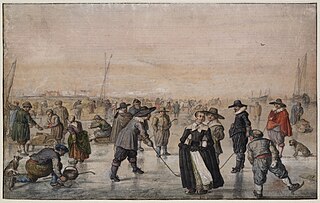
The 17th century lasted from January 1, 1601, to December 31, 1700 (MDCC).
The 0s BC were the period between 9 BC and 1 BC, the last nine years of the before Christ era. It is one of two "0-to-9" decade-like timespans that contain nine years, along with the 0s.
The 340s decade ran from January 1, 340, to December 31, 349.
The 250s was a decade that ran from January 1, 250, to December 31, 259.

Western Christianity is one of two subdivisions of Christianity. Western Christianity is composed of the Latin Church and Western Protestantism, together with their offshoots such as the Old Catholic Church, Independent Catholicism and Restorationism.
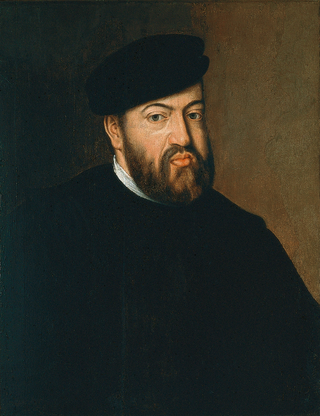
John III, nicknamed The Pious, was the King of Portugal and the Algarves from 1521 until his death in 1557. He was the son of King Manuel I and Maria of Aragon, the third daughter of King Ferdinand II of Aragon and Queen Isabella I of Castile. John succeeded his father in 1521 at the age of nineteen.

The Kingdom of Mutapa – sometimes referred to as the Mutapa Empire, Mwenemutapa, – was an African kingdom in Zimbabwe, which expanded to what is now modern-day Mozambique, Botswana, Malawi, and Zambia.

Habsburg Spain refers to Spain and the Hispanic Monarchy, also known as the Catholic Monarchy, in the period from 1516 to 1700 when it was ruled by kings from the House of Habsburg. It had territories around the world, including modern-day Spain, a piece of south-eastern France, eventually Portugal and many other lands outside the Iberian Peninsula, including in the Americas and Asia. Habsburg Spain was a composite monarchy and a personal union. The Habsburg Spanish monarchs of this period are chiefly Charles I, Philip II, Philip III, Philip IV and Charles II. In this period the Spanish Empire was at the zenith of its influence and power. Spain, or "the Spains", referring to Spanish territories across different continents in this period, initially covered the entire Iberian Peninsula, including the crowns of Castile, Aragon and from 1580 Portugal. It then expanded to include territories over the five continents, consisting of much of the American continent and islands thereof, the West Indies in the Americas, the Low Countries, Belgium, Luxembourg, Italian territories and parts of France in Europe, Portuguese possessions such as small enclaves like Ceuta and Oran in North Africa, and the Philippines and other possessions in Southeast Asia. The period of Spanish history has also been referred to as the "Age of Expansion".
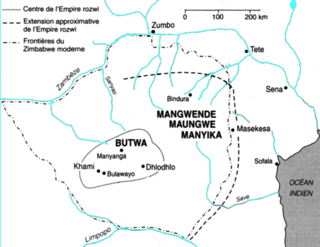
The Rozvi Empire (1660–1866) was a Shona state established on the Zimbabwean Plateau by Changamire Dombo. The term "Rozvi" refers to their legacy as a warrior nation, taken from the Shona term kurozva, "to plunder". They became the most powerful fighting force in the whole of Zimbabwe.
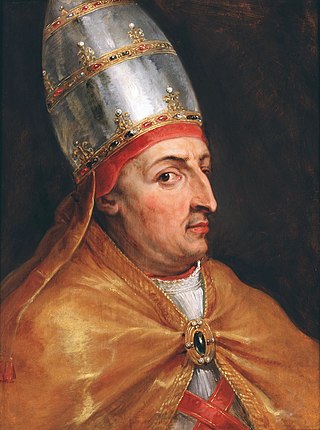
Dum Diversas is a papal bull issued on 18 June 1452 by Pope Nicholas V. It authorized King Afonso V of Portugal to fight, subjugate, and conquer “those rising against the Catholic faith and struggling to extinguish Christian Religion”— namely, the "Saracens (Muslims) and pagans" in a militarily disputed African territory. The document consigned warring enemies that lost to "perpetual servitude". This and the subsequent bull, issued by Nicholas in 1455, gave the Portuguese what they saw as moral justification to freely acquire slaves along the African coast by force or trade. The edicts are thus seen as having facilitated the Portuguese slave trade from West Africa and as having legitimized the European colonization of the African continent.

Western civilization traces its roots back to Europe and the Mediterranean. It is linked to ancient Greece, from which it was carried to Rome, and Medieval Western Christendom which emerged during the Middle Ages and experienced such transformative episodes as the development of Scholasticism, the Renaissance, the Reformation, the Enlightenment, the Industrial Revolution, the Scientific Revolution, and the development of liberal democracy. The civilizations of Classical Greece are considered seminal periods in Western history. Major cultural contributions also came from the Christianized Germanic peoples, such as the Franks, the Goths, and the Burgundians. Charlemagne founded the Carolingian Empire and he is referred to as the "Father of Europe." Contributions also emerged from pagan peoples of pre-Christian Europe, such as the Celts and Germanic pagans as well as some significant religious contributions derived from Judaism and Hellenistic Judaism stemming back to Second Temple Judea, Galilee, and the early Jewish diaspora; and some other Middle Eastern influences. Western Christianity has played a prominent role in the shaping of Western civilization, which throughout most of its history, has been nearly equivalent to Christian culture.. Western civilization has spread to produce the dominant cultures of modern Americas and Oceania, and has had immense global influence in recent centuries in many ways.

Francisco Barreto was a Portuguese soldier and explorer. An officer in Morocco during his early life, Barreto sailed to Portuguese India and was eventually appointed viceroy of the colony. After his return to Lisbon, he was tasked with an expedition to southeast Africa in search of legendary gold mines. Barreto died in what is now Mozambique, having never reached the mines.
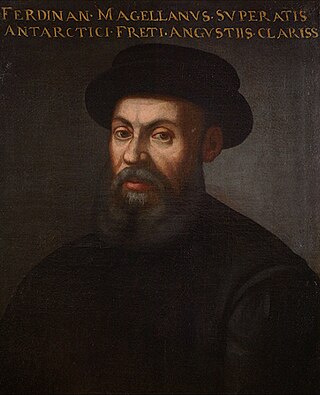
Ferdinand Magellan was a Portuguese explorer best known for having planned and led the 1519–22 Spanish expedition to the East Indies, which achieved the first circumnavigation of Earth in history. During this expedition, he also discovered the Strait of Magellan, allowing his fleet to pass from the Atlantic into the Pacific Ocean and perform the first European navigation to Asia via the Pacific. Magellan died in the Philippines during his voyage, and his crew completed the return trip to Spain in 1522.
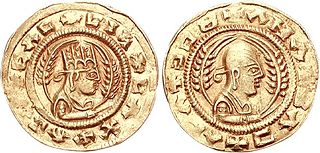
The Kingdom of Aksum also known as the Kingdom of Axum, or the Aksumite Empire, was a kingdom in East Africa and South Arabia from classical antiquity to the Middle Ages, based in what is now northern Ethiopia and Eritrea, and spanning present-day Djibouti and Sudan. Emerging from the earlier Dʿmt civilization, the kingdom was founded in 1st century. The city of Axum served as the kingdom's capital for many centuries until it relocated to Kubar in the 9th century due to declining trade connections and recurring external invasions.

The Western world, also known as the West, primarily refers to various nations and states in the regions of Western Europe, Northern America, and Australasia; with some debate as to whether those in Eastern Europe and Latin America also constitute the West. The Western world likewise is called the Occident in contrast to the Eastern world known as the Orient. The West is considered an evolving concept; made up of cultural, political, and economic synergy among diverse groups of people, and not a rigid region with fixed borders and members. Definitions of "Western world" vary according to context and perspectives.

On October 19, 1596, the Spanish ship San Felipe was shipwrecked on Urado in Kōchi on the Japanese island of Shikoku en route from Manila to Acapulco in the Manila-Acapulco Galleon Trade. The local daimyō Chōsokabe Motochika of the Chōsokabe clan that ruled Tosa province during the Sengoku Jidai seized the cargo of the richly laden Manila galleon, and the incident escalated to Toyotomi Hideyoshi, ruling taikō of Japan. The pilot of the ship suggested to Japanese authorities that it was Spanish modus operandi to have missionaries infiltrate a country before an eventual military conquest, depicting the Spanish campaigns in the Americas and the Philippines in this way. This led to the crucifixion of 26 Christians in Nagasaki, the first lethal persecution of Christians by the state in Japan. The executed were later known as the Twenty-Six Martyrs of Japan.
The medieval and early modern history of Africa spans from the medieval and early modern period until the colonial period in the history of Africa.















